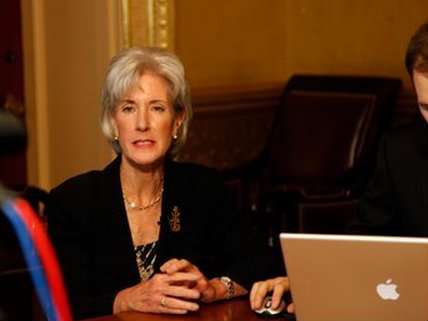Half of Georgia's Obamacare Sign-ups Haven't Paid, Says State Insurance Commissioner

The Obama administration announced last week that 8 million people had signed up for private health coverage through the 2010 health care law. But not all of those people are covered, because not all of those people have paid their first month's premium.
How many people selected a plan but didn't mail in the first check? The Obama administration hasn't released exact figures, but outgoing Health and Human Services Secretary Kathleen Sebelius said at the end of last month that between 80 and 90 percent of the sign-ups had paid up.
That's an aggregate number, however, and it doesn't necessarily hold for every state. For example, Georgia's non-payment rate appears to be much higher.
As of last week, about half of the 220,000 sign-ups recorded in the state hadn't resulted in payment, according to the state's insurance commissioner. Via Georgia Health News:
Georgia insurers received more than 220,000 applications for health coverage in the Affordable Care Act's exchange as of the official federal deadline of March 31, state officials said Wednesday.
Insurance Commissioner Ralph Hudgens, though, said premiums have been received for only 107,581 of those policies, which cover 149,465 people.
"Many Georgians completed the application process by the deadline, but have yet to pay for the coverage," Hudgens said in a statement Wednesday.
What this tells us is that non-payment rates won't be uniform across the states—and that the variation between high and low payment rates will be significant. California, for example, has estimated that only about 15 percent of its sign-ups haven't paid.
The disparity is going to contribute to the unevenness of the Obamacare experience going forward. We've already seen this with the rollout of the state exchanges, some of which were basically functional on day one, or quickly overcame initial launch problems, and some of which are still essentially unusable.
We'll see a similar pattern going forward. In some states, enrollment will have beaten expectations, multiple insurers will compete for business, and the technology will basically work. In other states, sign-up numbers won't translate to enrollments because of non-payment, enrollment targets will be missed, and administrative problems will continue.
(Link via Jim Geraghty.)


Show Comments (49)